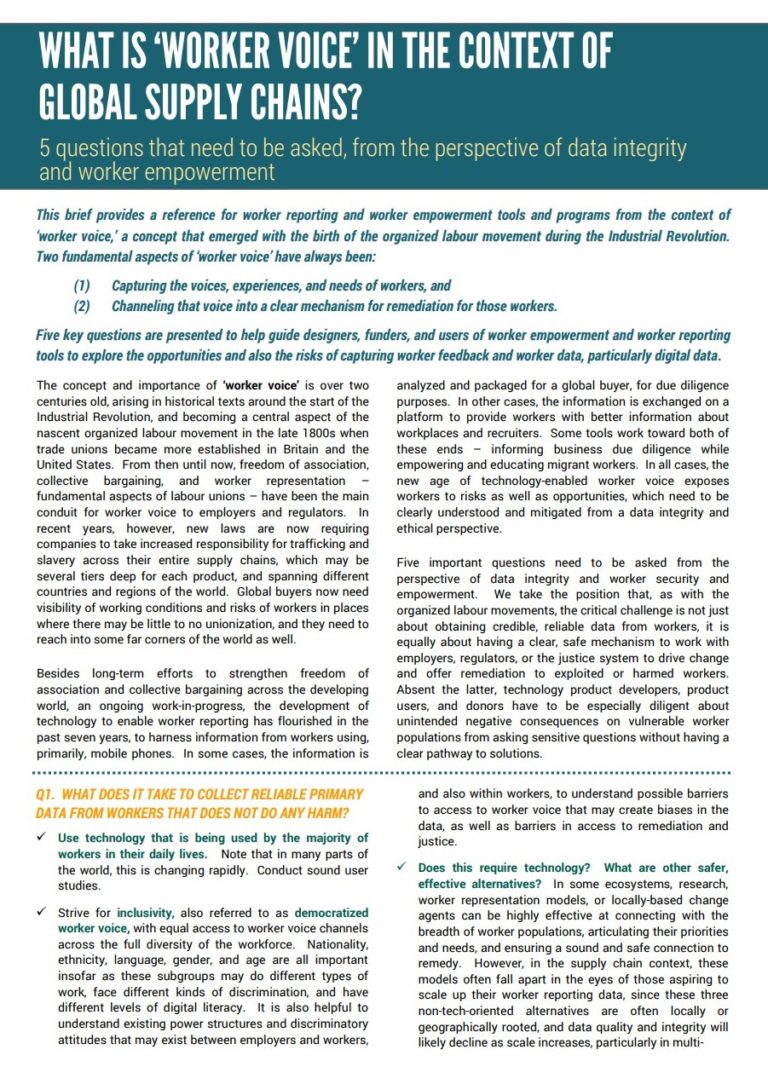This brief provides a reference for worker reporting and worker empowerment tools and programs from the context of ‘worker voice,’ a concept that emerged with the birth of the organized labour movement during the Industrial Revolution. Two fundamental aspects of ‘worker voice’ have always been:
(1) Capturing the voices, experiences, and needs of workers, and
(2) Channelling that voice into a clear mechanism for remediation for those workers.
Five key questions are presented to help guide designers, funders, and users of worker empowerment and worker reporting tools to explore the opportunities and also the risks of capturing worker feedback and worker data, particularly digital data

